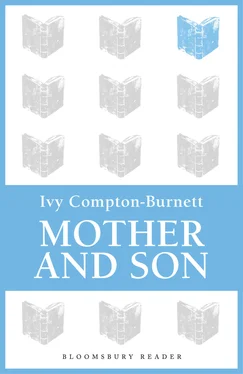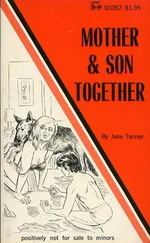The day came, and the guests with it, and Julius was introduced to the women.
“I think we have met before,” he said to Miss Burke.
“Yes, in your house, when I came about the post as Mrs. Hume’s companion.”
“Miss Burke is not afraid of the truth, Father,” said Rosebery. “I think there are few things of which she would be afraid.”
“Applying for posts does develope the courage,” said Hester. “I have only done it by letter, but the encounter had to come.”
“We have only pleasant recollections of the occasion, Miss Wolsey.”
“Plautus, you were to have been shut up,” said Emma.
“Not on my account, Miss Greatheart. I confess to a slight antipathy to cats, but it would ill become me to have to be protected from one.”
“It would indeed,” said Hester, inviting Plautus to her lap, and compelling him to occupy it. “Plautus, you are so different from Tabbikin. How you are two distinct individualities!”
“I was thinking the opposite,” said Julius. “Surely they have much the same ways.”
“Shockingly the same,” said Emma. “Suppose Plautus is an average cat!”
“Do you care for him yourself?” said Julius.
“No, Miss Burke does that now. Oh, you mean in the other sense. But Plautus does not mean it.”
“He does not mind who looks after him?”
“Isn’t it dreadful of him? He does not refuse to take food from any hand but ours. You will find that he does not.”
“You are both very unperceptive,” said Hester. “But I shall teach you better, Mr. Hume. You will learn so much cat-lore from me. And you will find it so rewarding.”
“I am too old for fresh lores. And this one takes a long time, to judge from Miss Greatheart’s progress.”
“She is pandering to you, a thing I should scorn to do. I should not hope to win your respect in that way. I should not value it, if I did.”
“Luncheon is ready,” said Miss Burke. “Will you have Plautus in the dining-room?”
“Miss Burke,” said Rosebery, “you will allow me to put in a plea for his presence?”
“Well, I am the only other person who dislikes him, and I do not count.”
“Miss Burke,” said Rosebery, in a low, startled tone, “surely that is not the case!”
“I meant I was used to putting up with him.”
“Words are such an unsatisfactory medium, dear,” said Emma.
“May I relieve you of the carving, Miss Greatheart?” said Rosebery. “You will talk the better to your guests. I have done it at our own table since my mother left us.”
“I can undertake it in future,” said Hester. “I always think it is the woman’s business. It was once regarded as such. It was late that feminine helplessness came into fashion.”
“There is much to be said for feminine leisure and its results,” said Rosebery.
“There is more to most of us for feminine labour and the results of that. It is no good to shut our eyes to it.”
“I think it is a little help,” said Emma. “Otherwise we should have to face it.”
“To my mind ‘woman’ and ‘labour’ are terms that should be kept apart,” said Rosebery, as he exerted himself.
“There, see what a help you are finding it.”
“Miss Greatheart, this occasion recalls to me the one that may be called its prototype. I feel that its pleasures are in a sense shared with my mother. It renders every enjoyment a double one.”
“It is kind of you to come again and to bring your father.”
“I am a sorry substitute,” said Julius.
“Father! No one thought of you in that light.”
“You have come home, Miss Wolsey,” said Julius. “We forget that our house is not that to you.”
“I forget it myself. It shows it is becoming so.”
“This is a home such as I look to have myself one day,” said Rosebery, looking round.
“A hope that will hardly be realised,” said Emma. “Your future is not in your hands.”
“Miss Greatheart, I have taken it into my hands. I have withdrawn from my position as my father’s heir, in favour of his elder nephew, who has met me with great consideration. I am at liberty to sketch the outline of my future; and a home on this scale would accord with my tastes, and also with my means, as I shall experience the pleasures of contrivance. Of course it is all in the future, and I hope in the distant one. During my father’s lifetime his home is naturally mine.”
“Why did you act nobly?”
“I did not do so. I acted in accordance with my wishes. Prominence and responsibility are foreign to me, possibly owing to my long dependence on my mother’s guidance. Indeed I have a feeling that I am still acting under it.”
“I never know why self-sacrifice is noble,” said Miss Burke. “Why is it better to sacrifice oneself than someone else?”
“It is no better,” said Hester, “and it is not really held to be.”
“It does not seem that we ought to matter ourselves as much as other people,” said Emma. “But I have never met a case of self-sacrifice.”
“Thank you Miss Greatheart,” said Rosebery. “You do not regard my action in that light.”
“It would be trying to be the object of it,” said Hester.
“That would be the best thing to be,” said Miss Burke. “There would be some compensation.”
“Sacrifice should be anonymous, or it does not deserve the name.”
“But then it would not be made,” said Emma. “It would really deserve it.”
“I wonder how it would feel to have a sacrifice made for one,” said Miss Burke.
“Miss Burke, I fear it is an experience you have not met,” said Rosebery.
“Have you met it?” said Julius.
“I remember many instances of it in my mother’s dealings with me.”
“They should hardly count. They would have satisfied herself.”
“There is none that does count,” said Emma. “Unless Mr. Hume is making one in giving up his son as his heir.”
“A mild one. Francis is my father’s grandson. I could not have accepted any other successor.”
“I cannot help being glad that Mrs. Hume did not know of the change,” said Hester. “I think it would have been a sacrifice to her.”
“The question did not arise until she was dead.”
“Father, may I take exception to that word? It is not one I should use.”
“Well, until her death. What are we to say?”
“Such words come unreadily to my lips.”
“We must use words as they are used, or stand aside from life.”
“The second alternative holds no terrors for me.”
“You are an ideal survivor,” said Emma.
“It is what is left to me, Miss Greatheart, the thing I can be.”
“You can take your part in things with other survivors,” said Julius.
“Father, I am not used to this dealing,” said Rosebery, on a low, incredulous note. “My mother may have been overgentle with me, but it is a harsh and sudden change. I should be allowed to make it more gradually.”
“Your mother always said what was in her mind.”
“Ah, there lies the difference; in the minds.”
“You are not a child, Rosebery.”
“It is what I have been, in a sense, Father. And we know what period is the happiest in our lives. Do not seek to belittle it for me. My claim is a helpless one, and should be met.”
“It is generally the demands of the powerful that are met,” said Miss Burke.
“You are not thinking of me, dear, are you?” said Emma.
“No, I should call you one of the helpless ones.”
“You keep above all manner of work, Miss Greatheart?” said Julius.
“Is ‘above’ the word?” said Hester. “Ought we to look down on ordinary usefulness?”
“I wonder if we ought,” said Emma. “Can everyone be wrong?”
Читать дальше












